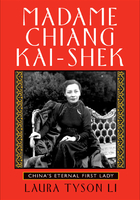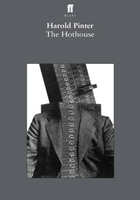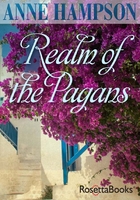EFFICIENCY THROUGH EMPHASIS AND SUBORDINATION
In a word, the principle of emphasis...is followed best, not by remembering particular rules, but by being full of a particular feeling.
—C.S. BALDWIN, Writing and Speaking
The gun that scatters too much does not bag the birds. The same principle applies to speech.
The speaker that fires his force and emphasis at random into a sentence will not get results. Not every word is of special importance—therefore only certain words demand emphasis.
You say MassaCHUsetts and MinneAPolis, you do not emphasize each syllable alike, but hit the accented syllable with force and hurry over the unimportant ones. Now why do you not apply this principle in speaking a sentence? To some extent you do, in ordinary speech; but do you in public discourse? It is there that monotony caused by lack of emphasis is so painfully apparent.
So far as emphasis is concerned, you may consider the average sentence as just one big word, with the important word as the accented syllable. Note the following:
"Destiny is not a matter of chance. It is a matter of choice."
You might as well say MASS-A-CHU-SETTS,emphasizing every syllable equally, as to lay equal stress on each word in the foregoing sentences.
Speak it aloud and see. Of course you will want to emphasize destiny, for it is the principal idea in your declaration, and you will put some emphasis on not,else your hearers may think you are affirming that destiny is a matter of chance. By all means you must emphasize chance, for it is one of the two big ideas in the statement.
Another reason why chance takes emphasis is that it is contrasted with choice in the next sentence.Obviously, the author has contrasted these ideas purposely, so that they might be more emphatic,and here we see that contrast is one of the very first devices to gain emphasis.
As a public speaker you can assist this emphasis of contrast with your voice. If you say, "My horse is not black," what color immediately comes into mind?White, naturally, for that is the opposite of black.If you wish to bring out the thought that destiny is a matter of choice, you can do so more effectively by first saying that "DESTINY is NOT a matter of CHANCE." Is not the color of the horse impressed upon us more emphatically when you say, "My horse is NOT BLACK. He is WHITE" than it would be by hearing you assert merely that your horse is white?
In the second sentence of the statement there is only one important word—choice. It is the one word that positively defines the quality of the subject being discussed, and the author of those lines desired to bring it out emphatically, as he has shown by contrasting it with another idea. These lines, then,would read like this:
"DESTINY is NOT a matter of CHANCE. It is a matter of CHOICE." Now read this over, striking the words in capitals with a great deal of force.
In almost every sentence there are a few MOUNTAIN PEAK WORDS that represent the big, important ideas.When you pick up the evening paper you can tell at a glance which are the important news articles. Thanks to the editor, he does not tell about a "hold up" in Hong Kong in the same sized type as he uses to report the death of five firemen in your home city. Size of type is his device to show emphasis in bold relief.He brings out sometimes even in red headlines the striking news of the day.
It would be a boon to speech-making if speakers would conserve the attention of their audiences in the same way and emphasize only the words representing the important ideas. The average speaker will deliver the foregoing line on destiny with about the same amount of emphasis on each word. Instead of saying,"It is a matter of CHOICE," he will deliver it, "It is a matter of choice," or "IT IS A MATTER OF CHOICE"—both equally bad.
Charles Dana, the famous editor of The New York Sun, told one of his reporters that if he went up the street and saw a dog bite a man, to pay no attention to it. The Sun could not afford to waste the time and attention of its readers on such unimportant happenings. "But," said Mr. Dana, "if you see a man bite a dog, hurry back to the office and write the story." Of course that is news; that is unusual.
Now the speaker who says "IT IS A MATTER OF CHOICE" is putting too much emphasis upon things that are of no more importance to metropolitan readers than a dog bite, and when he fails to emphasize"choice" he is like the reporter who "passes up" the man's biting a dog. The ideal speaker makes his big words stand out like mountain peaks; his unimportant words are submerged like stream-beds. His big thoughts stand like huge oaks; his ideas of no especial value are merely like the grass around the tree.
From all this we may deduce this important principle: EMPHASIS is a matter of CONTRAST and COMPARISON.
Recently the New York American featured an editorial by Arthur Brisbane. Note the following,printed in the same type as given here.
=We do not know what the President THOUGHT when he got that message, or what the elephant thinks when he sees the mouse, but we do know what the President DID.=
The words THOUGHT and DID immediately catch the reader's attention because they are different from the others, not especially because they are larger. If all the rest of the words in this sentence were made ten times as large as they are, and DID and THOUGHT were kept at their present size, they would still be emphatic, because different.
Take the following from Robert Chambers' novel,"The Business of Life." The words you, had, would,are all emphatic, because they have been made different.
He looked at her in angry astonishment. "Well, what do you call it if it isn't cowardice—to slink off and marry a defenseless girl like that!"
"Did you expect me to give you a chance to destroy me and poison Jacqueline's mind? If I had been guilty of the thing with which you charge me, what I have done would have been cowardly. Otherwise, it is justified.
A Fifth Avenue bus would attract attention up at Minisink Ford, New York, while one of the ox teams that frequently pass there would attract attention on Fifth Avenue. To make a word emphatic, deliver it differently from the manner in which the words surrounding it are delivered. If you have been talking loudly, utter the emphatic word in a concentrated whisper—and you have intense emphasis. If you have been going fast, go very slow on the emphatic word. If you have been talking on a low pitch, jump to a high one on the emphatic word. If you have been talking on a high pitch, take a low one on your emphatic ideas.Read the chapters on "Inflection," "Feeling," "Pause,""Change of Pitch," "Change of Tempo." Each of these will explain in detail how to get emphasis through the use of a certain principle.
In this chapter, however, we are considering only one form of emphasis: that of applying force to the important word and subordinating the unimportant words. Do not forget: this is one of the main methods that you must continually employ in getting your effects.
Let us not confound loudness with emphasis. To yell is not a sign of earnestness, intelligence, or feeling.The kind of force that we want applied to the emphatic word is not entirely physical. True, the emphatic word may be spoken more loudly, or it may be spoken more softly, but the real quality desired is intensity,earnestness. It must come from within, outward.
Last night a speaker said: "The curse of this country is not a lack of education. It's politics." He emphasized curse, lack, education, politics. The other words were hurried over and thus given no comparative importance at all. The word politics was flamed out with great feeling as he slapped his hands together indignantly. His emphasis was both correct and powerful. He concentrated all our attention on the words that meant something, instead of holding it up on such words as of this, a, of, It's.
What would you think of a guide who agreed to show New York to a stranger and then took up his time by visiting Chinese laundries and boot-blacking"parlors" on the side streets? There is only one excuse for a speaker's asking the attention of his audience:He must have either truth or entertainment for them.If he wearies their attention with trifles they will have neither vivacity nor desire left when he reaches words of Wall-Street and skyscraper importance. You do not dwell on these small words in your everyday conversation, because you are not a conversational bore. Apply the correct method of everyday speech to the platform. As we have noted elsewhere, public speaking is very much like conversation enlarged.
Sometimes, for big emphasis, it is advisable to lay stress on every single syllable in a word, as absolutely in the following sentence:
I ab-so-lute-ly refuse to grant your demand.
Now and then this principle should be applied to an emphatic sentence by stressing each word. It is a good device for exciting special attention, and it furnishes a pleasing variety. Patrick Henry's notable climax could be delivered in that manner very effectively: "Give—me—liberty—or—give—me—death." The italicized part of the following might also be delivered with this every-word emphasis. Of course, there are many ways of delivering it; this is only one of several good interpretations that might be chosen.
Knowing the price we must pay, the sacrifice we must make, the burdens we must carry, the assaults we must endure—knowing full well the cost—yet we enlist,and we enlist for the war. For we know the justice of our cause, and we know, too, its certain triumph.
—From "Pass Prosperity Around," by ALBERT J. BEVERIDGE, before the Chicago National Convention of the Progressive Party.
Strongly emphasizing a single word has a tendency to suggest its antithesis. Notice how the meaning changes by merely putting the emphasis on different words in the following sentence. The parenthetical expressions would really not be needed to supplement the emphatic words.
I intended to buy a house this Spring (even if you did not).
I INTENDED to buy a house this Spring (but something prevented).
I intended to BUY a house this Spring (instead of renting as heretofore).
I intended to buy a HOUSE this Spring (and not an automobile).
I intended to buy a house THIS Spring (instead of next Spring).
I intended to buy a house this SPRING (instead of in the Autumn).
When a great battle is reported in the papers, they do not keep emphasizing the same facts over and over again. They try to get new information, or a"new slant." The news that takes an important place in the morning edition will be relegated to a small space in the late afternoon edition. We are interested in new ideas and new facts. This principle has a very important bearing in determining your emphasis. Do not emphasize the same idea over and over again unless you desire to lay extra stress on it; Senator Thurston desired to put the maximum amount of emphasis on "force" in his speech. Note how force is emphasized repeatedly. As a general rule, however,the new idea, the "new slant," whether in a newspaper report of a battle or a speaker's enunciation of his ideas, is emphatic.
In the following selection, "larger" is emphatic, for it is the new idea. All men have eyes, but this man asks for a LARGER eye.
This man with the larger eye says he will discover,not rivers or safety appliances for aeroplanes, but NEW STARS and SUNS. "New stars and suns" are hardly as emphatic as the word "larger." Why? Because we expect an astronomer to discover heavenly bodies rather than cooking recipes. The words, "Republic needs" in the next sentence, are emphatic; they introduce a new and important idea. Republics have always needed men, but the author says they need NEW men. "New" is emphatic because it introduces a new idea. In like manner, "soil," "grain," "tools," are also emphatic.
The most emphatic words are italicized in this selection. Are there any others you would emphasize?Why?
The old astronomer said, "Give me a larger eye, and I will discover new stars and suns." That is what the republic needs today—new men—men who are wise toward the soil, toward the grains, toward the tools. If God would only raise up for the people two or three men like Watt, Fulton and McCormick, they would be worth more to the State than that treasure box named California or Mexico. And the real supremacy of man is based upon his capacity for education. Man is unique in the length of his childhood, which means the period of plasticity and education. The childhood of a moth, the distance that stands between the hatching of the robin and its maturity, represent a few hours or a few weeks, but twenty years for growth stands between man's cradle and his citizenship. This protracted childhood makes it possible to hand over to the boy all the accumulated stores achieved by races and civilizations through thousands of years.
—Anonymous.
You must understand that there are no steelriveted rules of emphasis. It is not always possible to designate which word must, and which must not be emphasized. One speaker will put one interpretation on a speech, another speaker will use different emphasis to bring out a different interpretation. No one can say that one interpretation is right and the other wrong. This principle must be borne in mind in all our marked exercises. Here your own intelligence must guide—and greatly to your profit
QUESTIONS AND EXERCISES.
1. What is emphasis?
2. Describe one method of destroying monotony of thought-presentation.
3. What relation does this have to the use of the voice?
4. Which words should be emphasized, which subordinated, in a sentence?
5. What is the effect of a lack of emphasis?
6. When is it permissible to emphasize every single word in a sentence?
7 Note the emphasis and subordination in some conversation or speech you have heard. Were they well made? Why? Can you suggest any improvement?
8. From a newspaper or a magazine, clip a report of an address, or a biographical eulogy. Mark the passage for emphasis and bring it with you to class.
9. In the following passage, would you make any changes in the author's markings for emphasis?Where? Why? Bear in mind that not all words marked require the same degree of emphasis—in a wide variety of emphasis, and in nice shading of the gradations, lie the excellence of emphatic speech.
I would call him Napoleon, but Napoleon made his way to empire over broken oaths and through a sea of blood. This man never broke his word. "No Retaliation" was his great motto and the rule of his life; and the last words uttered to his son in France were these: "My boy, you will one day go back to Santo Domingo; forget that France murdered your father." I would call him Cromwell, but Cromwell was only a soldier, and the state he founded went down with him into his grave. I would call him Washington,but the great Virginian held slaves. This man risked his empire rather than permit the slave-trade in the
humblest village of his dominions.
You think me a fanatic to-night, for you read history,not with your eyes, but with your prejudices. But fifty years hence, when Truth gets a hearing, the Muse of History will put Phocion for the Greek, and Brutus for the Roman, Hampden for England, Lafayette for France, choose Washington as the bright, consummate flower of ourearlier civilization, and John Brown the ripe fruit of our noonday, then, dipping her pen in the sunlight, will write in the clear blue, above them all,the name of the soldier, the statesman, the martyr,TOUSSAINT L'OUVERTURE.
—WENDELL PHILLIPS, Toussaint l'Ouverture.















